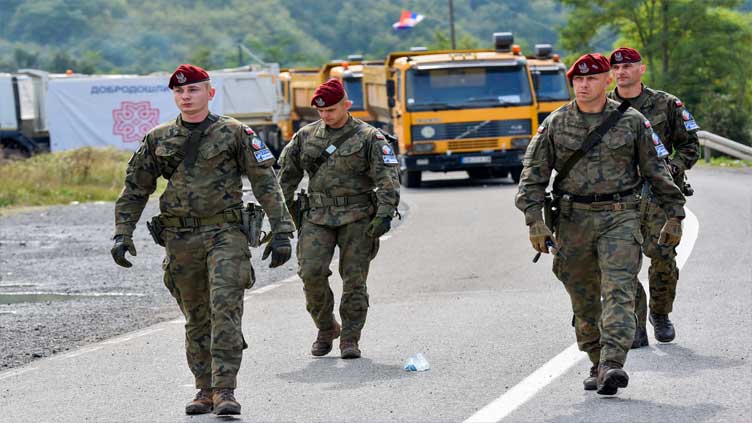'State of war': residents, police describe heavy battle in northern Kosovo

World
'State of war': residents, police describe heavy battle in northern Kosovo
BANJSKA, Kosovo (Reuters) - A battle between police and armed men holed up in a monastery turned a quiet village in northern Kosovo into a war zone, residents and police said on Wednesday, in the first accounts at the scene of fighting that has shocked the region.
Kosovo authorities allowed journalists into the village of Banjska for the first time since Sunday's battle, the worst violence for years in a restive area where local ethnic Serbs reject rule from Kosovo's ethnic Albanian-dominated government.
"In the main road that you came through, it was the place where my officer was killed, shot and killed. The whole part that you see around here was used to shell us - mortar shells were used - and for shooting at us," Veton Elshani, a police commander in northern Kosovo, told Reuters at the site.
"The investigation will not be over for a long time because for us it is interesting to know why this place was chosen in this manner and what was the aim of these armed men, what they were trying to achieve," Elshani said.
Kosovo authorities say dozens of armed men seized a Serbian Orthodox monastery on Sunday before they were driven out in a battle in which three fighters and one police officer were killed.
Banjska resident Radoslav Markovic, a grey-haired Serb, told Reuters that while the fighting was underway, residents had taken it "seriously, as a state of war".
"I am pretty much an optimist, that things will be as nice as they used to be, that we will live nicely without fear, that we will have a normal life and there will be no need to leave."
Three men have so far been charged with participating in the attack. No group has claimed responsibility or explained the motives.
Kosovo, which declared independence from Serbia in 2008 after a guerrilla uprising and 1999 NATO intervention, accuses Serbia of arming and supporting the Serb fighters.
Serbia, which has not recognised its former province's independence, blames Kosovo for precipitating violence by mistreating ethnic Serb residents. Serbia and the main Serb political group in Kosovo have proclaimed public mourning for the Serbs killed in the battle.
There was little remaining evidence visible at the site of the scale of the battle, apart from scattered automatic rifle shell-casings on the road. Heavily armed Kosovo police carrying rifles manned positions alongside armoured vehicles.
Speaking at a cabinet meeting in Pristina, Kosovo Prime Minister Albin Kurti said police had found weapons worth 5 million euros, "sufficient for hundreds of fighters".
Some of the suspected fighters had "appeared side by side at a table in Belgrade and Raska with the President of Serbia, (Aleksandar) Vucic, showing the direct role of the Serbian state in this," he said.

